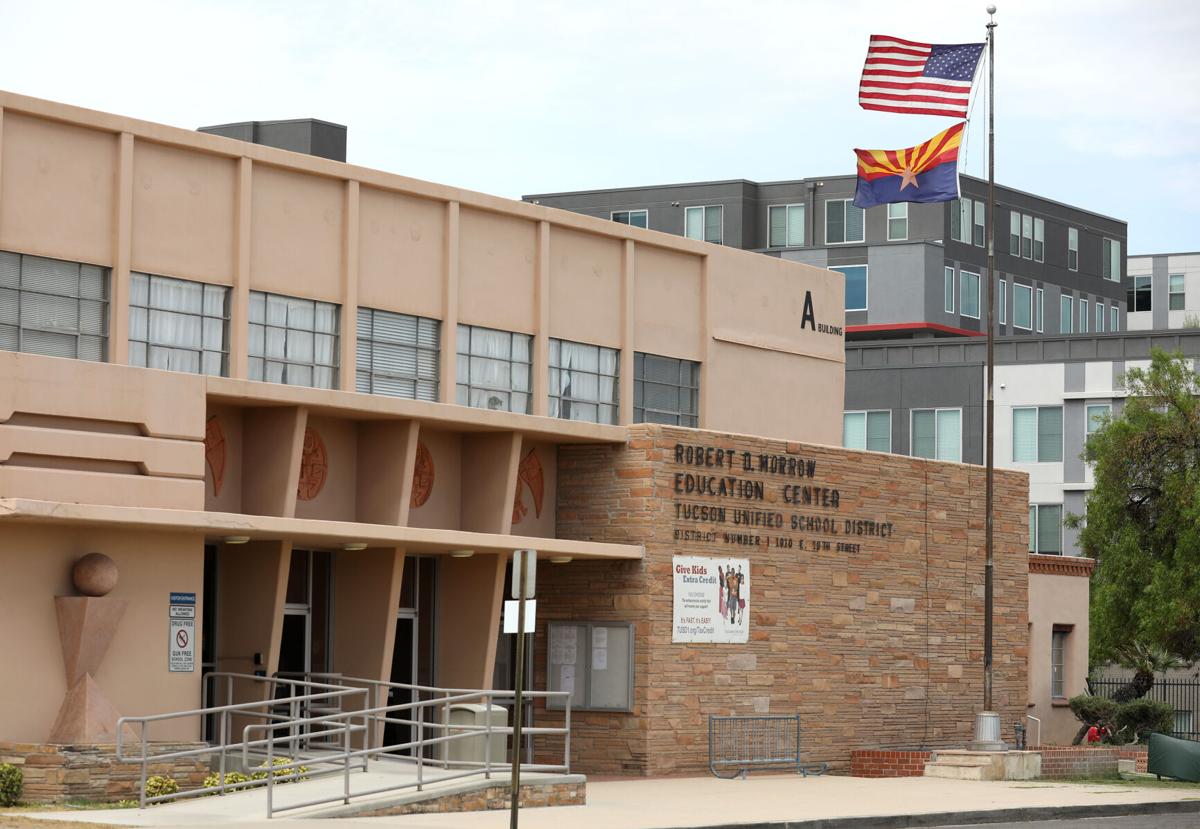PHOENIX — Arizona lawmakers are moving to require a public vote in the state’s largest school districts, including TUSD, to determine whether they should be split up.
But what happens after that hasn’t quite been worked out yet.
The measure, HB2546, is being advanced by Rep. Rachel Jones. The first-term Republican lawmaker who lives on the far east side of Tucson said many of her constituents are unhappy with the decisions made by the five-member governing board of Tucson Unified School District.
She said they would be happier with a smaller district, which would presumably give them a greater voice and a board elected more from their own area versus TUSD’s nearly 229 square miles that stretch from the edge of the San Xavier Indian Reservation through downtown, north of the Rillito River and east to Houghton Road.
But Jones’ displeasure with TUSD and her desire to force a vote to split it would also have a spillover effect. The measure, written to apply to districts of more than 35,000 students, would also mandate a vote in Mesa’s district, which is even larger.
That’s just fine with Rep. Justin Heap, R-Mesa.
“It is a massive beast of a school district,’’ he said when the measure was being debated in the House Committee on Municipal Oversight and Elections. Heap said the district’s racial and economic diversity make it too large to ensure parents get their voices heard.
HB2546 also would force an election in Chandler’s district. And in the Peoria, Gilbert and Deer Valley districts, student growth could put them over the 35,000 figure and force such elections.
All House Republicans agreed with Jones’ plan, voting March 1 in favor of the mandated elections. All Democrats were opposed.
East-side parents cited
Arizona law already allows an election to split a school district to be called if 10% of the residents of an area proposing to form a new district submit petitions. A similar margin is required from the area that would remain.
Jones said that option isn’t enough.
“This came from concerned parents, concerned constituents, that that process is almost impossible to get the desired outcome,’’ she said during House floor debate. The desired outcome, said Jones, is a smaller district for her constituents, and one where board members would answer to those constituents.
“There are parents in schools ... over on the east side of Tucson that are not in agreement with some of the decisions being made by the five-person board,’’ she said.
“What this (proposal) does is, it gives power back to the parents to say, ‘Yes, we would like to be able to potentially choose if we want to split up the district or not,’ “ Jones continued. “This does give the power to the parents to say, ‘You know, this isn’t working.’ ‘’
Jones said that breaking up the district would empower not just parents but also teachers and principals at individual schools.
Administrative costs
Rep. Stephanie Stahl-Hamilton, D-Tucson, questioned the finances of this. She noted the move is coming as lawmakers debate the amount of money being spent on education, especially funding earmarked for administration.
“Once we start dividing districts, we’re talking about school superintendent and all of the administrative staff that comes with establishing a new district,’’ she said.
“We would be funneling money away from the classroom, putting it into the establishment of new districts and new administration,’’ Stahl-Hamilton said. “I think in the long run it would cost the state a lot more money.’’
Jones said that isn’t necessarily true.
“We have a superintendent that makes a lot of money,’’ she said of TUSD, pegging the figure at about $500,000 a year.
But the latest three-year contract approved by the TUSD governing board for Superintendent Gabriel Trujillo actually puts his salary at $230,000, a 14% increase from his prior base pay, with a tax-deferred annuity of $15,000 a year and eligibility for $5,000 in performance-based pay each year.
Jones also said Trujillo has “a lot of assistant superintendents who make pretty good salaries.’’
“I believe if the parents were to split the district into, say, two or three more districts, that it would be a wash, if not a money savings,’’ she said.
Jones also said Tucson “spends more money than I think everybody in the state.’’
Figures from the Auditor General’s Office show TUSD spent $6,509 per student last school year on instruction, compared with the statewide average of $5,846. But the district’s administrative costs were $62 less per student than the statewide average.
Jones also questioned the district’s academic performance.
The auditor general’s report found that 20% of TUSD students passed state math assessments last school year, compared with 33% statewide. The district also lagged in assessments for science and English language arts.
Details missing
One thing missing from HB2546, as it was approved by the House, are details of how the breakup process would work.
Clear at this point is that a vote would be required in Tucson, Mesa and Chandler districts, with residents deciding whether two or three districts is better than one.
But there is nothing at this point to say residents would get maps to show exactly where the new lines would be drawn, something that would be required in an election sought by residents. Also missing is how assets like school buses would be divided and how to deal with existing bond debt.
Jones told Capitol Media Services much of that would be worked out in the Senate where the measure now heads. But she declined to provide specifics.
As recently as 2019 lawmakers debated a measure moving in the opposite direction. It would have forced consolidation of the more than 200 school districts in the state as a method of saving money by avoiding duplication. The measure failed.
Get your morning recap of today's local news and read the full stories here: tucne.ws/morning





